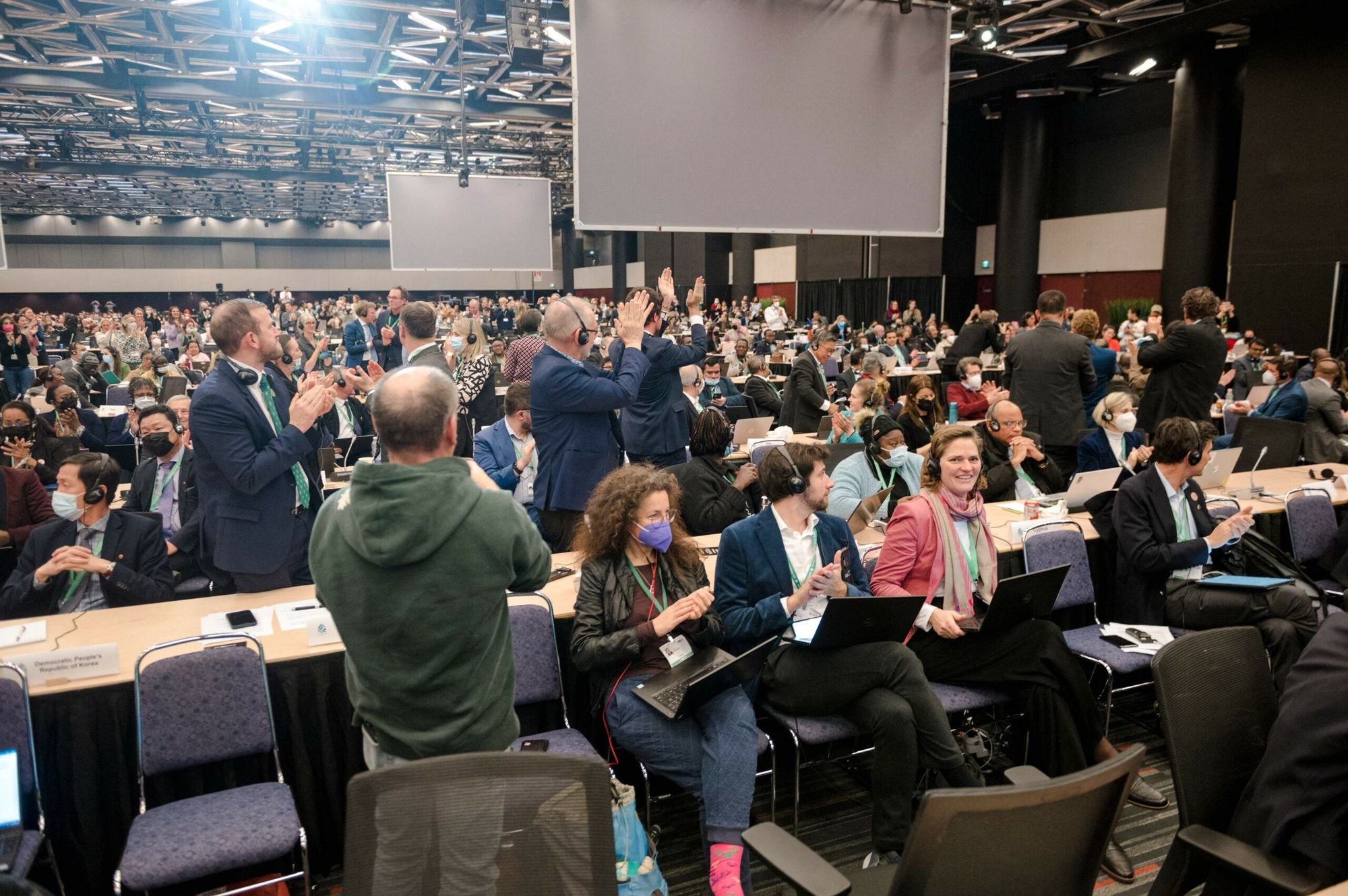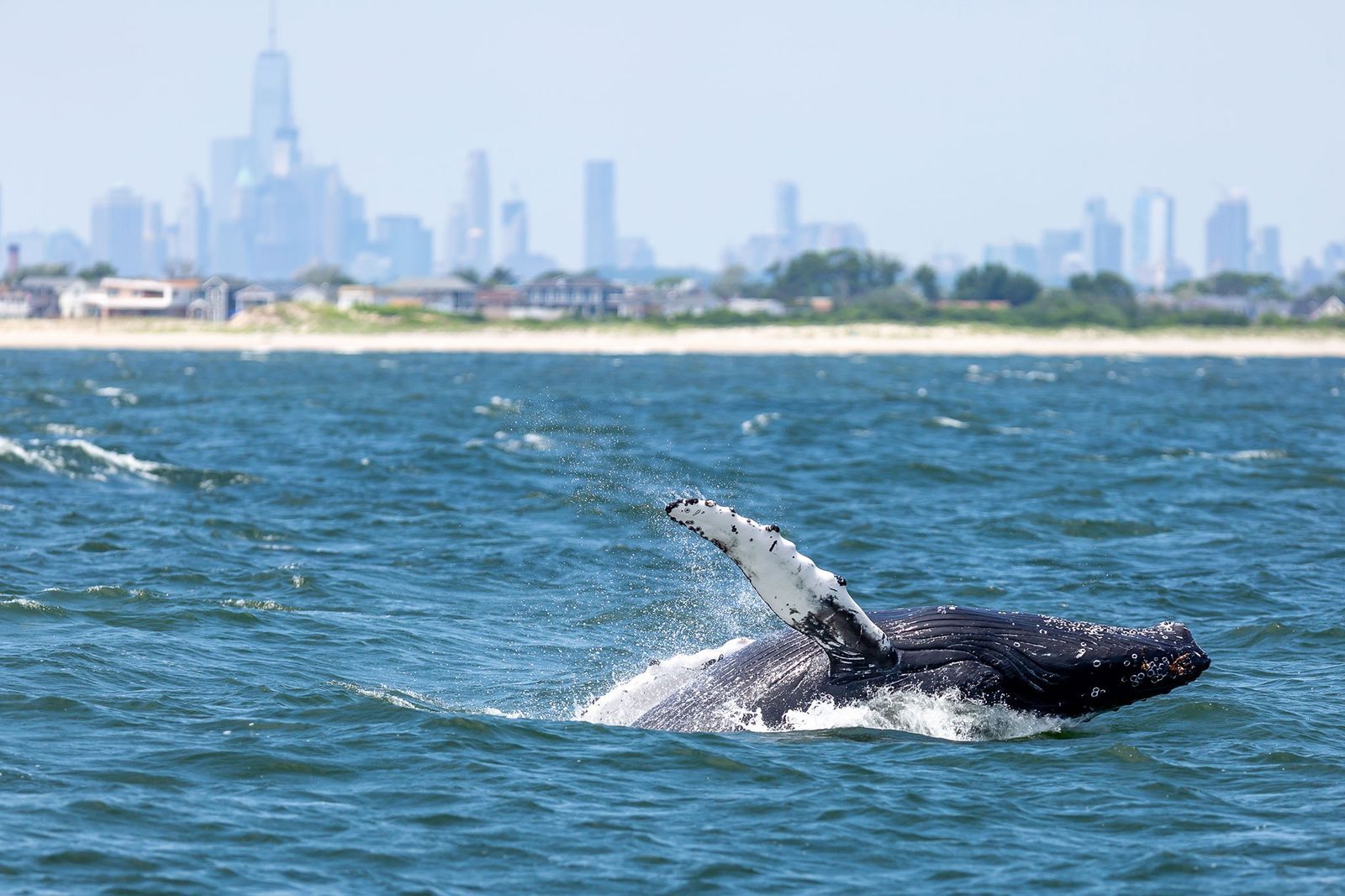This is our weekly roundup of good news from around the world. If you'd like to get this in your inbox, you can subscribe for free below.
It feels mildly embarrassing to be saying happy new year given how far into 2023 we already are, but we're going to do it anyway. Happy new year! We're delighted to be back after a month's hiatus, our batteries are fully recharged. We've also had some time to work on some long overdue projects in the background which we're really looking forward to sharing with you over the next few weeks.
For the few thousand of you joining us for the first time, welcome. The concept of this newsletter is very simple. Each edition, we pull together between 15 and 20 good news stories from around the world, split equally between human rights, public health, and economic development, and victories for conservation and animal rights. Occasionally we'll throw in some scientific or clean energy breakthroughs too.
Content warning: this newsletter is horribly biased. Our goal isn't to be a comprehensive news source, but to bring balance to your information diet by being deliberately unbalanced. The way we see it, there are thousands of media organisations that excel at informing you about everything that's going wrong in the world. We're one of the very few that focus on what's going right.
We hope you enjoy it.
Good news you probably didn't hear about
The American Cancer Society has released its latest data showing cancer deaths have fallen again in the United States in the most recent year for which data is available. Between 2019 and 2020, the mortality rate fell by 1.5%, and the overall rate has fallen by 33% since 1991, translating to an estimated 3,820,800 fewer deaths during this period. CNN
The WHO has certified the Democratic Republic of the Congo as free of transmission of dracunculus medinensis, the parasite that causes Guinea-worm disease. Only five countries now remain to be certified (Angola, Chad, Ethiopia, Mali, South Sudan), while Sudan is in the precertification stage. WHO
Between 2014 and 2021, the WHO's South East Asia Region achieved a 73% reduction in measles deaths and a 64% reduction in cases. Five of the region's 11 countries – Bhutan, DPR Korea, Maldives, Sri Lanka and Timor-Leste - have eliminated measles, and two - Maldives and Sri Lanka - have eliminated rubella as well. WHO
India has the world’s largest measles immunization program, targeting 27 million children annually. It's also one of the most successful - between 2017 and 2021, measles incidence decreased by 62%, and rubella by 48%. Although the pandemic caused millions of children to miss their shots, the programme is now back on track, and officials are aiming for elimination by the end of this year. WHO
It's widely accepted that the 21st century has been bad for democracy around the world: multiple research institutes have pointed out the phenomenon of 'democratic backslide.' However, new research shows there is actually little evidence of this, and that the real story of the last two decades is global democratic stability. OSF
🚨NEW PAPER ALERT!! @anthlittle and I are excited to share our new working paper “Subjective and Objective Measurement of Democratic Backsliding.” 🔥Our hot take🔥: Contrary to the current narrative, we DON’T find evidence that we are in a period of global democratic decline 🧵1/ pic.twitter.com/2sAKD6VISV
— Anne Meng (@annemeng_) January 18, 2023
The number of populist leaders around the world has fallen to a 20-year low after a series of victories for centrists in the past year. A new report says that 800 million fewer people are living under populist leaders at the start of 2023 compared to 2020. Much of the decline has occurred in Latin America, most notably with the defeat of Bolsonaro in Brazil. Guardian
Saudi Arabia has made significant progress on women's rights since 2019. Critics say the reforms are intended to deflect attention from the country's flagrant human rights violations, which cannot be ignored, but for millions of women, genuine change is happening quickly, altering the country's social fabric. ABC
The Ugandan government has declared an end to its Ebola outbreak, less than four months after cases were first reported. “Uganda put a swift end to the outbreak by ramping up key control measures such as surveillance, contact tracing and infection, prevention and control. The magic bullet has been our communities." Guardian
America's teen birth rate has plummeted in a single generation, "a change of such improbable magnitude that experts struggle to fully explain it." In 1991, a quarter of 15-year-olds became mothers before turning 20. Today, just 6% become teen mothers, a decline of 77% in 30 years. Teen births have fallen at equal rates among white, Hispanic and Black teenagers, and by more than half in every state. NYT
We all heard about the invasion of Brazil's Congress after Lula's inauguration. Unsurprisingly, the world's media paid less attention to the reopening of Brazil’s Indigenous affairs agency, Funai, bringing together hundreds of indigenous activists and leaders. “This is a very emotional moment. It is almost like a catharsis. Like in soccer, celebrating the goal. It’s an exorcism." Mongabay
The only home we've ever known
A panel of international experts backed by the United Nations has found that the ozone layer is on track to recover by 2040, thanks to decades of policy work to get rid of ozone-damaging chemicals. Since the hole was discovered in May 1985, countries have phased out 99% of ozone-depleting substances under the Montreal Protocol. NPR
Our success in phasing out ozone-eating chemicals shows us what can and must be done – as a matter of urgency – to transition away from fossil fuels, reduce greenhouse gases and so limit temperature increase.
Petteri Taalas, UN Environment Programme's Ozone Secretariat
Efforts to improve air quality in Europe are paying off with fewer people dying early or suffering illness due to air pollution. The European Environmental Agency just published its latest assessment, showing that between 2005 and 2020 the number of early deaths from exposure to PM2.5 fell by 45%, and the continent is on track to reach its target of a 55% reduction in premature deaths by 2030. EEA
A new analysis of cities around the world had challenged the classic urban trade-off between density and green spaces, concluding that ideal urban neighbourhoods need both. It turns out we can have our energy-efficient metropolises and our cool, clean air smelling of flowers, too. “Density is not destiny." Atlantic
A landmark victory for animal rights in the United States, with new legislation eliminating the requirement that pharmaceutical companies use animals to test new drugs before human trials. It marks a radical shift for the industry, the result of a cumulative effort of decades of scientific and technological breakthroughs and lobbying by activists. NPR
One of the hallmarks of the landmark global biodiversity agreement signed by almost 200 countries in December last year is its emphasis on Indigenous people in conservation efforts, marking a significant shift in the global debate on biodiversity. The agreement also gives credence to the 'Rights of Nature'- a growing movement already adopted by 30 countries and tribal nations. ICN

Decades after being declared biologically dead, the River Mersey in north-west England has been labelled “the best environmental news story in Europe” as fish species have begun rebounding. Conservation efforts along the river are rippling out, boosting the environment across the whole region and into North Wales. Wirral Globe
The recent decision to embark upon the rehabilitation of the Jordan River could prove vital to securing peace between Jordan and Israel. Decades of conflict, along with the climate crisis, have turned its once flowing waters into a trickle and with clean up now essential for both sides, cooperation is the only way forward. Jewish Insider
What’s happening now is a bit like a dream come true. If you came here ten years ago, nobody would have thought that such a thing could happen.
Nadav Tal, Water Officer, EcoPeace, Israel
Conservation efforts in the Caribbean have resulted in the dramatic recovery of the critically endangered Union Island gecko, with a population increase of 80% from 10,000 in 2018 to around 18,000. The gecko, only discovered in 2005, quickly became the target of exotic pet collectors, but was saved thanks to the rapid response of officials and activists. Mongabay
For the first time since 1977, no one-horned rhinos were poached in the Kaziranga National Park in India last year. It’s significant progress considering poachers killed over 190 rhinos in Assam between 2000 and 2021. Despite the poaching, the species' numbers have increased to 3,700 from just 200 at the turn of the century. Reuters
Proof that legislation powers conservation, New York harbour is teeming with life thanks to a landmark act by US Congress 50 years ago. The Clean Water Act helped transform the harbour from an open sewer into a functional ecosystem, with a resurgence in wild oysters, alewife, Atlantic salmon, whales and marine borers, and attracting bald eagles, ospreys, and herons back to the shoreline. NYT

If it bleeds, it leads
About a month ago, at the height of the Elon Musk clown show, and just as Harry and Meghan were getting ready to embark on the final leg of their grim-faced campaign to flog off any remaining shreds of dignity, a small research hospital in London unveiled an extraordinary milestone in the history of medicine, on par with the first heart transplant or the invention of the polio vaccine, and hardly anyone noticed.
On the 11th December 2022, the Great Ormond Street Hospital for Children announced they had cured a 13-year-old girl, Alyssa, from an 'incurable' form of leukaemia, using a modified form of CRISPR that instead of cutting DNA, changes one letter to another. It's a technique known as base editing, invented just six years ago, and this is the first time it's been used on a person. Following the treatment, Alyssa has no detectable cancer cells, and is now in remission.
In medical circles, the news has been greeted with jubilation and astonishment. Almost everywhere else, the silence has been deafening. We can't help but wonder (and with apologies to fans of the House of Windsor) what does it say about the priorities of the news industry when the death of a 96 year old British woman was one of the biggest stories of the last 12 months, but the miraculous cure of a 13 year old British teenager, via a new science that could result in millions of lives being saved from cancer, sinks without a trace?

That's it for this edition, we hope you enjoyed it. We'll be back in your inboxes again next week, with more good news.
Much love,
FC HQ





